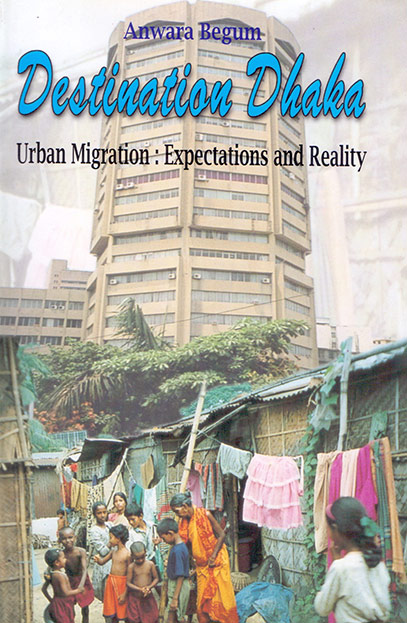- Shop
- Social Sciences
- Destination Dhaka: Urban Migration – Expectations and Reality
Destination Dhaka: Urban Migration – Expectations and Reality
https://uplbooks.com/shop/9789840514809-destination-dhaka-urban-migration-expectations-and-reality-3024 https://uplbooks.com/web/image/product.template/3024/image_1920?unique=56f7a2e
| Language: English |
Tags :
Book Info
Migration from rural regions to urban centers, especially the capital city of Dhaka, continues unabated. Popular hypotheses put forth to elucidate migration are inadequate. Migrants tend to be uneducated, ignorant, landless, and unemployed in the countryside. They tend to be unskilled and ill quipped for the city. Yet they migrate with expectations of a better life in the metropolis. The urban benefits fail to toughen up the majority of the poor migrants. Many of the migrants live in very poor housing, with some living without a shelter. An anomalous juxtaposition of abject squalor against the rising splendor of modern constructions characterizes Dhaka’s skyline. Despite the misery, people continue to pour in. The reason to migrate, it is suggested, would be some sort of expectation. It is the basis of these expectations that warranted this investigation and analysis. Given the migrant characteristics, it is the expectation of employment (even a survival instinct) that directly affects the likelihood of moving rather than the wage differential. The author probes the compulsive factors, which instigate the poor, the uneducated and the infirm to seek out a marginal existence in the city. Their anomalous situation, so obviously at variance with the urban profile, is a constant reminder to the government of its ineffectual efforts to provide the basic minimum to its citizens, either in the town or village. The pivotal issue is certainly the devising of a strategy of management for the authorities to resolve the dilemma of development without condemning a large proportion of its citizens to poverty of its urban slums. The analysis clarifies that the rural poor are migrating as a survival strategy and the resolution to this problem would lie in targeted programs of amelioration for the poorest in the rural areas.

Anwara Begum
Anwara Begum has an M.A. in Urban and Regional Planning from the Calcutta University. In 1995 she obtained a Ph.D. on a Commonwealth Scholarship, in Urban and Regional Planning from the Department of Civic Design, University of Liverpool, UK. Her study fields are urban area development priority, housing and settlements and the problems of social and economic deprivation of the urban poor, Millennium Development Goals for poverty reduction, education for poverty reduction and rural-to-urban migration.



